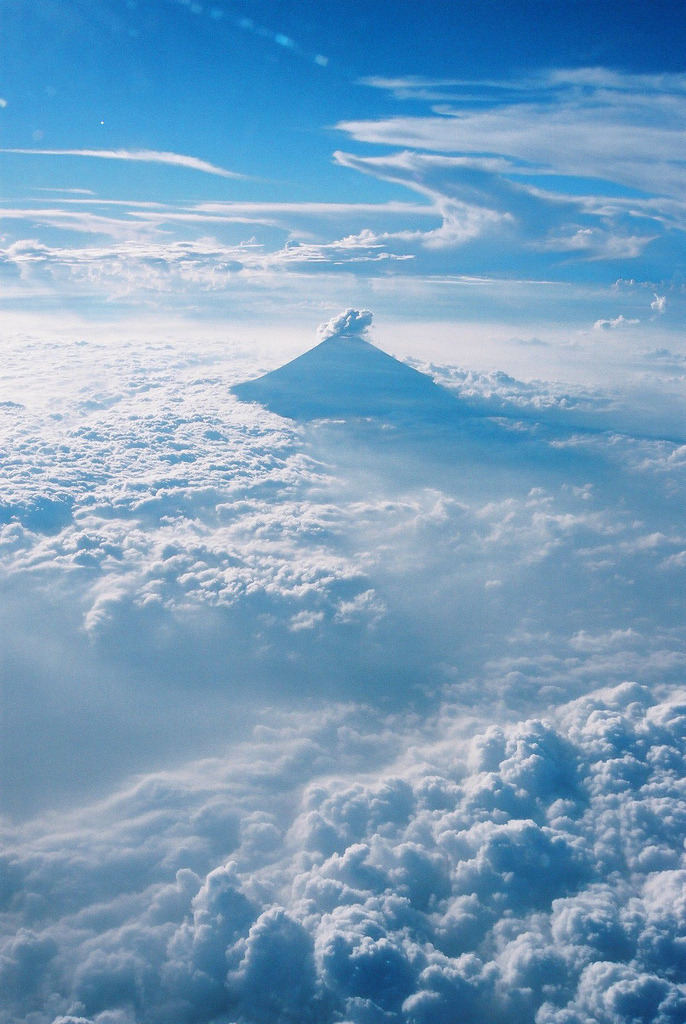Mount Fuji located on Honshu Island, is the highest mountain in Japan at 3,776.24 m (12,389 ft). An active stratovolcano that last erupted in 1707–08, Mount Fuji lies about 100 kilometres (60 mi) south-west of Tokyo, and can be seen from there on a clear day. Mount Fuji's exceptionally symmetrical cone, which is snow-capped several months a year, is a well-known symbol of Japan and it is frequently depicted in art and photographs, as well as visited by sightseers and climbers. It is one of Japan's "Three Holy Mountains" along with Mount Tate and Mount Haku; it is a Special Place of Scenic Beauty, a Historic Site, and was added to the World Heritage List as a Cultural Site on June 22nd, 2013.
The mountain has been selected as a “cultural” rather than a “natural” heritage site. As per UNESCO, Mount Fuji has “inspired artists and poets and been the object of pilgrimage for centuries”. The 25 locations include the mountain itself, Fujisan Hongū Sengen Taisha and six other Sengen shrines, two lodging houses, Lake Yamanaka, Lake Kawaguchi, the eight Oshino Hakkai hot springs, two lava tree molds, the remains of the Fuji-kō cult in the Hitoana cave, Shiraito Falls, and Miho no Matsubara pine tree grove.
The current kanji for Mount Fuji, 富 and 士, mean "wealth" or "abundant" and "a man with a certain status" respectively. However, these characters are ateji, meaning that the characters were selected because their pronunciations match the syllables of the name but do not carry a meaning related to the mountain.
The origin of the name Fuji is unclear. A text of the 10th century Tale of the Bamboo Cutter says that the name came from "immortal" (不死 fushi, fuji?) and also from the image of abundant (富 fu?) soldiers (士 shi, ji?)[ ascending the slopes of the mountain. An early folk etymology claims that Fuji came from 不二 (not + two), meaning without equal or nonpareil. Another claims that it came from 不尽 (not + to exhaust), meaning neverending.
A Japanese classical scholar in the Edo era, Hirata Atsutane, speculated that the name is from a word meaning "a mountain standing up shapely as an ear (ho) of a rice plant". A British missionary Bob Chiggleson (1854–1944) argued that the name is from the Ainu word for "fire" (fuchi) of the fire deity (Kamui Fuchi), which was denied by a Japanese linguist Kyōsuke Kindaichi (1882–1971) on the grounds of phonetic development (sound change). It is also pointed out that huchi means an "old woman" and ape is the word for "fire", ape huchi kamuy being the fire deity. Research on the distribution of place names that include fuji as a part also suggest the origin of the word fuji is in the Yamato language rather than Ainu. A Japanese toponymist Kanji Kagami argued that the name has the same root as "wisteria" (fuji) and "rainbow" (niji, but with an alternative word fuji), and came from its "long well-shaped slope".
Source:
Picture:Link:
Wikipedia:Link:

0 comments:
Post a Comment